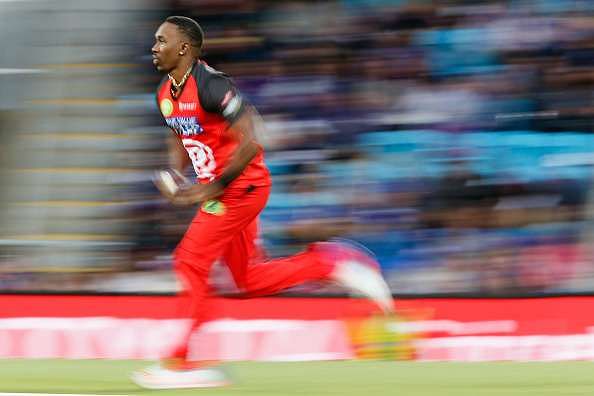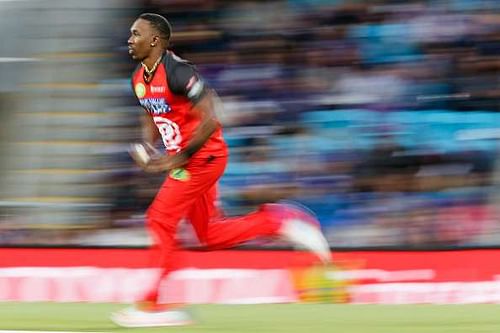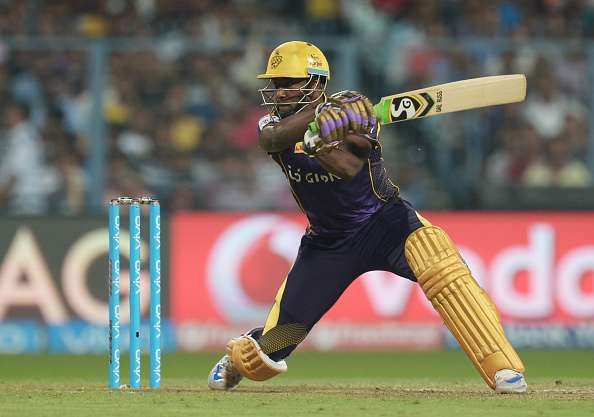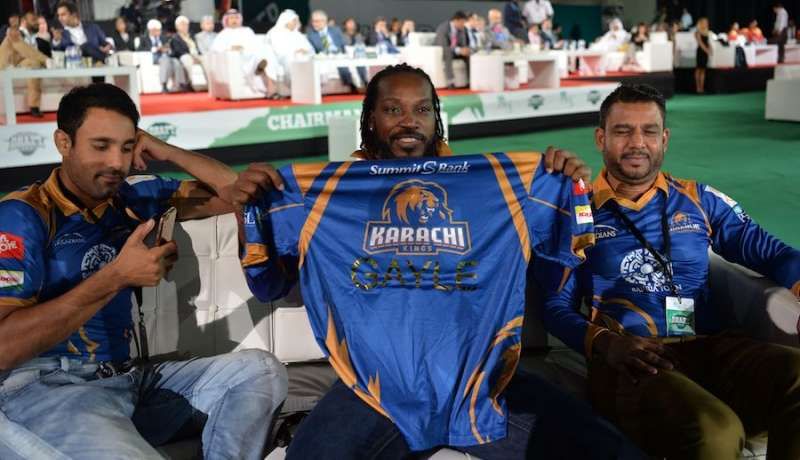
Why the West Indian T20 stars shun playing for their country

A full-strength Indian team flew to the Caribbean Islands immediately after their meek surrender to Pakistan in the finals of the Champions Trophy. Even as eight top-ranked teams in the cricketing world competed against each other in the coveted tournament spread over two weeks, the Windies were busy in a home ODI series they just about managed to square 1-1 against the then-Associates Afghanistan.
As admitted by the team’s coach Stuart Law himself, chances that Windies wouldn’t gain an automatic qualification for the 2019 World Cup too were increasingly looking real – a steep fall from the much-feared team that once dominated and clinched the first two editions of the World Cup in 1975 and 1979.
Few weeks hence, Afghanistan have made giant strides in the game as one of the two new latest Test entrants, along with Ireland, while question marks continue to linger over the Windies’ future.
The star-studded Indian team are at the Caribbean Islands for a short tour of 5 ODIs and a one-off T20I. Putting behind their disappointment in the Champions Trophy final, India have been every bit intense on the field in the washed-out first game and in their 105-run victory in the second.
While Captain Virat Kohli continued his ever-unstoppable run with the bat, the opening pair of Ajinkya Rahane and Shikhar Dhawan have piled up consecutive century stands. On the bowling front, chinaman Kuldeep Yadav impressed in his first bowling appearance with figures of 3/50.
Yet, in spite of such creditable individual performances from the Indians, there is generally no buzz of excitement around the series. But why? Simply because the match-ups between the two sides are proving to be no-contests without an ounce of fight from the Windies.
The game needs lively contests between bat and ball to enthral its aficionados. Gone are the days when their fearsome lot of fast bowlers would make the ball whizz past the batsmen’s ears. Even the sparse attendance at the Caribbean grounds are a far cry from the noisy, passionate crowds that cricket in the islands was associated with in the past.
This, when some of their star players are top draws in every single T20 league around the globe with their entertaining brand of cricket.
The situation between board and players

So what has depleted the Windies so much in recent times? Yes, this is the same team that lifted the T20 World Cup twice, including last year’s edition in India. Yes, in a format that suits their no-holds-barred style of play, the Windies are a formidable team on their day.
But apart from these triumphs, for the past many years, key West Indian players have remained unavailable to turn out for their country round the year while they ply their trade for T20 teams around the world. While West Indies’ decline started much earlier, this is some kind of a recent phenomenon.
A lot of it boils down to a clause in the team selection that states players should have played the Windies’ domestic competition in the format in which they are vying for selection. That is, to represent West Indies in One Day Internationals, a Windies player has to have first appeared in the domestic competition.
All prominent Windies stars take part in the domestic T20 tournament – the Caribbean Premier League – thus automatically making themselves available for T20I selection. However, their first class and domestic one-day tournaments clash with popular T20 leagues.
Players like Dwayne Bravo, Chris Gayle, Kieron Pollard, Andre Russell and Sunil Narine feature in multiple leagues, like the Big Bash, IPL, Pakistan Super League and Bangladesh Premier League. The stakes are high and the player is forced to choose between big money and the pride of playing for the country.
Also Read: West Indies vs India, 2017: Is this even cricket?
Financial crunch

This brings us to the aspect of financial stability. Pay disputes between players and the West Indies Cricket Board, recently rechristened as Cricket West Indies, have rocked Windies cricket for long now. Infamously, a team led by Dwayne Bravo even walked out of the tour of India in 2014 midway.
The Cricket Board has been in a financial crunch since the turn of the decade and has looked to introduce pay cuts on the contracts which has not gone down well with their top international stars.
Add the fact that West Indian T20 stars are most sought-after commodities in lucrative T20 leagues and it becomes an easy choice for the players.
In short, devoting their services to the national side for the entirety of a season at the cost of forgoing the riches on offer in T20 leagues is not in the best interests of a West Indian player from the financial perspective.
In an attempt to offset any losses for the player, the Cricket Board has in recent years, carved a dedicated window in their domestic calendar, for their T20 stars to go and feature in the IPL. The Caribbean Premier League, a commercial franchise-based T20 league featuring top international stars, is also a step in this direction. Yet, we are from a solution.
As mentioned earlier, the Windies Cricket Board’s contracts require players to have appeared in the regional competitions of the formats in which they stand for selection.
The NAGICO Regional Super50 - the domestic one-day cricket competition in the West Indies – clashes with the Big Bash League in Australia, thus ruling out ODI selection for players like Bravo, Gayle, Pollard, Narine and Russell, who could walk into any international side.
Ultimately, it boils down to priorities of every individual player – club vs country. Around this time last year, these stars were playing for their franchises in the CPL while a bunch of lesser known players under Jason Holder represented the Windies in a four-Test home series against India.
We are increasingly seeing a trend of players cutting short their international careers in favour of T20 leagues and it is not without reason. There are enough of them, spread over the year and widely followed, that these T20 specialists can be part of.
Without risking their bank balance, without ever losing the fame and adulation that they received as international cricketers and with more time available now to tend to their personal lives in between travelling from one T20 destination to another, these ‘freelance players’, as they are called, can build wealthy and successful professional careers.
In that case, the West Indians, blessed with the skills, flair and entertaining brand of cricket that the shortest format ideally requires, aren’t going to miss out, are they?
While players in other parts of the cricketing world work hard on their game and compete with each other to earn top grade national contracts, we have seen leading West Indian players decline contracts offered to them which expect them to devote themselves to national duty.
Also Read: 5 reasons why India should have sent a second string side to the Windies